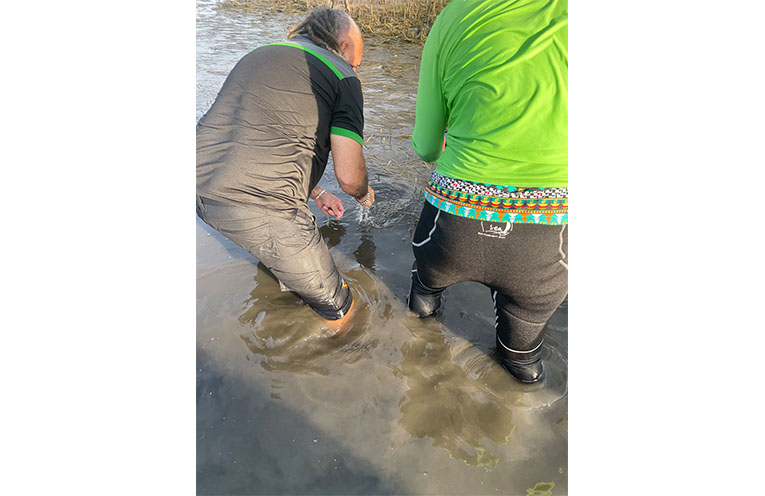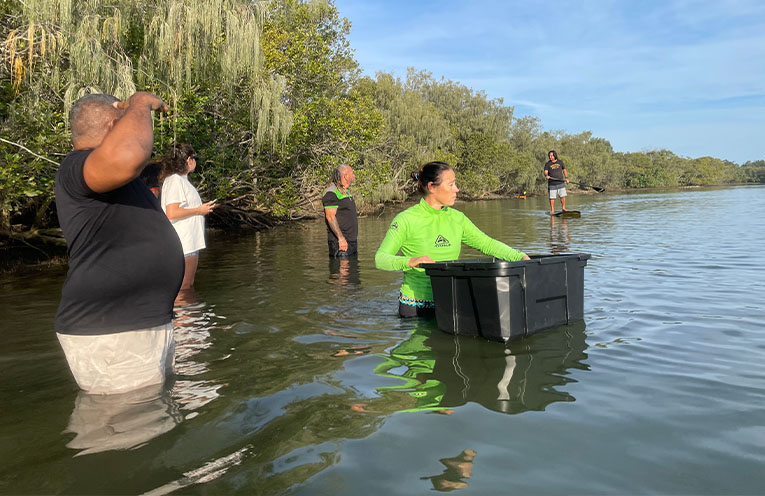THE NSW Department of Primary Industries and Regional Development (DPIRD) has released 110,000 juvenile Sydney Cockles into the Tweed River and Wallis Lake since May in an effort to restore populations in the flood affected regions.
DPIRD Senior Principal Research Scientist Dr Matt Taylor said Sydney Cockle (Anadara trapezia) are sensitive to the salinity of estuarine water across their life cycle and freshwater flushes from floods have caused population numbers in some estuaries to decline.
“The Seeding Sydney Cockles project, aims to develop aquaculture restoration techniques for Sydney Cockle populations in estuaries impacted by the February 2022 floods and show how juvenile cockles respond to low salinity,” Dr Taylor said.
DPIRD’s Mollusc Aquaculture Team, led by Senior Research Scientist Dr Laura Parker, have so far produced 110,000 Sydney Cockles at the Port Stephens Fisheries Institute to be stocked into flood affected regions.
“Millions of marine and freshwater fish are produced through aquaculture and stocked into estuaries and rivers by DPIRD each year, however, this is the first time we have produced and restocked cockles to depleted beds,” Dr Parker said.
“Beyond producing the cockles, we have also been trying to understand how juvenile cockles respond to low salinity and how we can increase their resilience to future flood events.”
Dr Taylor said the trial releases of Sydney Cockle into these flood-affected estuaries is an important step towards developing strategies to aid ecosystem and fishery recovery following floods, as it is a highly valued species for commercial, recreational and cultural fishers all along the NSW coast.
“A second release of around 50,000 Sydney Cockle recently occurred in Wallis Lake, after water quality improved following recent flooding events.
“With their creamy white shell and that they are readily found in shallow estuarine waters, cockles are popularly harvested by recreational fishers for bait and are important culturally for Aboriginal communities as a food source.
“As filter feeders, cockles are also important to the health of our estuaries by filtering 1.5 litres of water in an hour.”
This project is jointly funded by the Australian and NSW Governments under Disaster Recovery Funding Arrangements.
You can help your local paper.
Make a small once-off, or (if you can) a regular donation.
We are an independent family owned business and our newspapers are free to collect and our news stories are free online.
Help support us into the future.





